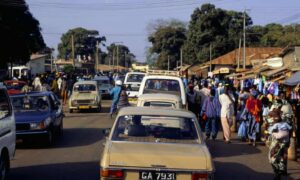
Thousands of people in developing countries have been left waiting for vital payments that many rely on to live after the Small World money transfer service collapsed.
The company, part of LCC Trans-Sending, which allowed users to send cash for pickup collection in more than 170 countries, ceased trading on 10 June.
Customers who paid money into the company’s account, expecting it to be sent on to friends and family, which failed to arrive, face an anxious wait to see how much of their payments will be returned.
“Small World UK and its associated group businesses have ceased receiving or processing new money transfer transactions through its agents, branches, websites and mobile applications,” a statement on the company’s website said.
While not a household name in the UK, Small World is understood to have been very popular in west Africa and the Philippines, often used by workers to send money back to families, or for people making charitable payments.
Distressed customers have been taking to forums such as Trustpilot to report that they are still waiting for payments to be returned.
On 18 June, the Financial Conduct Authority (FCA) which regulated Small World’s parent firm, LCC Trans-Sending, said the company had entered special administration.
Accountants at the appointed administrators, Grant Thornton, are now in the process of going through the books in an attempt to establish who is owed what.
Judith Anderson, a Small World customer from Cardiff, is one of those caught up in its collapse. Anderson said she had used the service for the last 10 years without a problem but her most recent £400 payment, made at the weekend and destined for four families in the Gambia, has failed to arrive.
“This is a big inconvenience for me but it is a disaster for the families that I send money to who rely on it to buy rice each month. There will be thousands of others around the world who will have been waiting for money they rely on who won’t have received it,” she said.
The fact that she made her payment after the administrators were appointed means that she will probably get her full £400 back. The picture is less clear for those in the UK who sent money in the run up the firm’s collapse.
